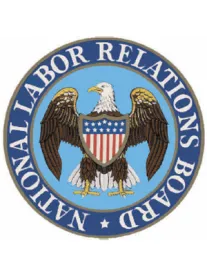On March 26, the General Counsel (“GC”) of the NLRB signaled that he will be asking the Board to overturn or modify many precedents that negatively impact unions when it comes to organizing and collective bargaining. In Memorandum GC 16-01 (“GC Memo”), the GC directed the Regional Directors in the Board’s offices across the country, who are charged with investigating unfair labor practice (“ULP”) charges and deciding which cases to take to trial, to forward all charges involving issues identified in the GC Memo to the GC’s Division of Advice (“Advice”). It is clear that Advice will instruct the Regional Directors to issue complaints and to follow legal theories advanced by Advice as part of this coordinated effort. The areas identified in the GC Memo include the following:
Cases That Favor Union Organizing and Employee Rights in Non-Union Companies
-
Increased Employee Access to Employer Email Systems
Regional Directors are now required to refer any case involving the application of Purple Communications, 316 NLRB No. 126 (2014), absent a showing by the employer of “special circumstances” that justify specific limitations. In Purple Communications, the NLRB adopted a presumption that employees with work-related access to an employer’s email system can use the employer’s e-mail to discuss their terms and conditions of employment or union organizing while on non-working time. The GC indicates an interest in expanding access to systems other than email, limiting employer claims of special circumstances justifying restrictions on the use of employer email systems, and curtailing employers’ rights to review employees’ workplace email use on the grounds that such monitoring constitutes illegal surveillance of employee concerted activities protected by Section 7 of the National Labor Relations Act (“NLRA”).
-
Expansion of Weingarten Rights
The GC also seeks to review cases involving the applicability of Weingartenprinciples (the right of an employee to have a representative or witness at investigatory interviews that can potentially result in disciplinary action) to non-union workplaces. The NLRB previously held, in IBM Corp., 341 NLRB 1288 (2004), that an employee in a non-union workplace does not have a statutory right to be represented by a coworker in a disciplinary interview.
-
Broader Union Protection During Organizing Campaigns
Regional Directors must now refer to Advice all cases where remedies for ULP activity could include enhanced access to employer electronic communications systems and non-work areas and providing unions with “equal time” to meet with employees on company premises to respond to so-called captive audience speeches by employers to assembled workers during organizing campaigns.
-
Review of English-Only Rules
The GC will now more closely scrutinize cases addressing whether English-only rules violate Section 8(a)(1) of the NLRA by limiting employee rights to communicate with coworkers concerning terms and conditions of employment.
-
Redefining On-Demand Workers and Contractors as “Employees”
The GC’s interest in the employment status of workers in the on-demand, or gig, economy and independent contractors is another effort to expand the scope of the NLRA to individuals traditionally not considered employees.
-
Limitations on Employer Speech
Regional Directors must now refer to Advice all cases involving the application of Tricast Inc., 274 NLRB 377 (1985), which held that an employer does not violate the law by informing employees that unionization will alter the relationship between employees and management.
The GC also now requires a review of cases involving plant closure threats to a small number of employees in a large workforce. In Springs Industries, 332 NLRB 40 (2000), the NLRB held that a threat made to only one or two individuals is not presumed to have been widely disseminated and thus will not be presumed to have been learned of by all employees in the unit. The GC will likely ask the Board to abandon this rule.
The General Counsel Is Seeking to Dilute Employer Defenses to Strikes
Regional Directors have been directed to refer to Advice any case involving “an allegation that an employer’s permanent replacements of economic strikers had an unlawful motive” and is likely looking to curtail employers’ ability to protect itself from the impact of an economic strike. Notably, in a May 31 decision, the Board agreed with the GC’s argument that the right of employers to hire permanent replacements in an economic strike should be narrowed.
It has always been a principle of NLRA law that employees are protected from discrimination when they strike, but the NLRA does not handcuff an employer’s ability to function or continue production with newly hired strike replacements where employers exercise their right to permanently replace economic strikers. In Hot Shoppes, 146 NLRB 802 (1964), the NLRB held that it was not a ULP for an employer faced with an imminent strike threat to hire permanent replacements and to refuse to oust the replacements when strikers offered to come back to work, absent evidence of an independent unlawful motive. The GC is likely seeking to increase the use of the “unlawful motive” theory to challenge employer decisions to hire permanent replacements for economic strikers.
Whether these initiatives to overrule prior precedent will continue to succeed will play out in NLRB decisions depending largely on the appointments to the NLRB by the next President of the United States.
What Hospitality Employers Should Do Now
In addition to generally being mindful of the principles above, hospitality employers should do the following:
-
Evaluate whether policies limiting the use of company email by employees violate the ruling in Purple Communications, and revise such policies, as necessary, to conform to the ruling.
-
Review whether English-only rules limit employee rights to communicate with coworkers concerning the terms and conditions of employment. If such rules limit employee rights, then consider whether revising those rules to apply only to limited locations (like public areas) is appropriate.
-
Vet any statements to be given to employees regarding whether unionization will alter the relationship between employees and management.




 />i
/>i


